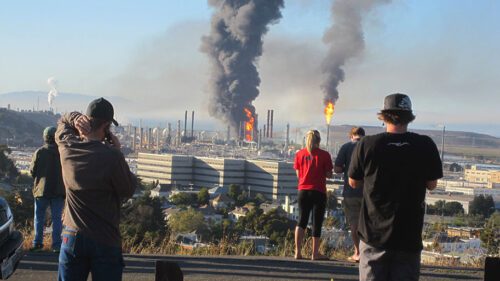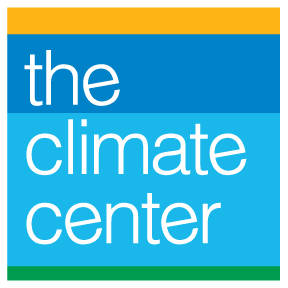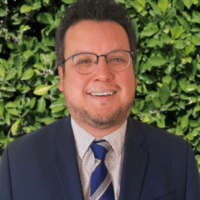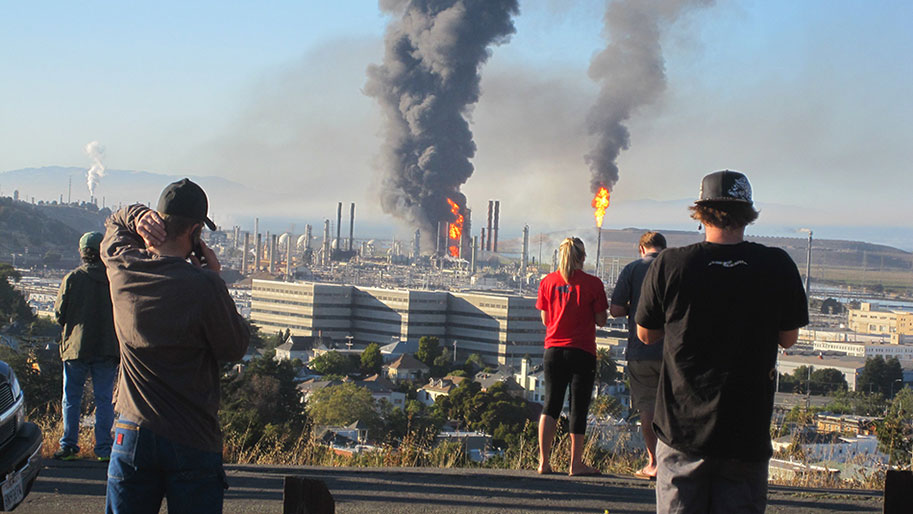
Envisioning a Climate-Safe California webinar #6: What a World Beyond Fossil Fuels Will Mean for Workers, Families, and Communities – 24 May 2023
The Clean Coalition was a partner organization for this webinar, which took place on 24 May 2023 at 10am.
The Climate Center believes in thriving, healthy communities. They envision a future where everyone in California enjoys clean air and water, renewable and reliable energy, healthy food, and abundant nature. California has the tools and the know-how to make this vision a reality if our elected leaders summon the political will. It is time we put people back at the heart of policy. In doing so, we can keep our friends and loved ones safe from worsening climate disasters, create millions of family-sustaining jobs, and give everyone the chance to thrive in the clean energy economy.

The climate center’s Envisioning a Climate-Safe California: Stories and Solutions webinar series will combine personal stories, frontline perspectives, scientific expertise, and policy analysis to shed light on how California can lead the world toward a climate-safe future. We’ll hear from the people and communities feeling the impacts of the climate crisis today as well as those advocating for solutions.
See below for more information on the six webinar of the series.
Webinar #6: What a World Beyond Fossil Fuels Will Mean for Workers, Families, and Communities
Wednesday, 24 May, 2023 at 10am to 11:30am PST
In spite of our climate-friendly reputation, California is still a major oil and gas producer. This webinar explored opportunities for developing an equitable, statewide plan to phase out oil and gas extraction, imports, refining, end-use, and exports in a managed decline. Managed decline means that facilities closest to sensitive receptors (like schools and homes) are the first to shut down, and ensures a truly just transition that benefits workers, families, and communities that depend on the oil and gas industry for their livelihoods. Presenters included labor representatives, fossil fuel workers, frontline communities, state regulators, and state lawmakers.
+ Click here to register and for more information
Presenters

Virginia Parks, PhD, is a geographer and urban planner specializing in the study of urban inequality. Her research and teaching interests include labor and employment, urban politics and policy, and local economic development. Professor Parks has published research on the racial wage gap, immigrant employment patterns, public sector employment, workplace diversity, job training, and the politics of urban development. Throughout this work Professor Parks is motivated by how urban space, politics, and regulatory environments influence inequality outcomes. Her current research analyzes the economic effects of the clean energy transition on workers and regional economies.

Robert Zardeneta serves as the Green Workforce Senior Manager in the Mayor’s Office of Sustainability for Los Angeles Mayor Karen Bass. Robert has more than a decade of experience developing Green Career pathways for underrepresented communities on both a local and national level. He currently is a member of the planning team managing the L.A. City-County Just Transition Task Force for workers and frontline communities impacted by the phase-out of oil drilling.

